- HOME
- Products and Seeds
- Achievements
Achievements
Cases of commercialization
Awamori "KARIYUSHI"
2024Prof. Hiroshi Takagi

Awamori brewed with Awamori yeast (101H yeast), developed by Professor Hiroshi Takagi and his colleagues in the Fermentation Science Laboratory, has been commercialized by Shinzato Shuzo Co., Ltd. (Okinawa, Japan).
In 2016, a research group led by Prof. Takagi developed 101H yeast in collaboration with BioJet Co., Ltd. (Uruma, Japan). Strain 101H was selected from the parent strain, awamori yeast 101, using breeding technology established by Prof. Takagi. Strain 101H produces a higher content of isoamyl alcohol, known as a banana-like flavor and ‘ginjoko’ in Japanese sake, than the parent strain, and has the characteristic of adding a fruity flavor to awamori. In 2016, Shinzato Shuzo commercialized a new awamori, as the brand name “Hyper Yeast 101”, brewed with 101H yeast. Recently, strain 101H was used for the renewal of the company's brand “Kariyushi”.
Craft Beer
2024Prof. Hiroshi Takagi

Professor Hiroshi Takagi and Associate Professor Akira Nishimura in the Laboratory of Fermentation Science, have successfully isolated the yeast strain Saccharomyces cerevisiae (ADH837), from some plants living in the pond area of NAIST.
The prototype ale beer brewed with strain ADH837 by 10 Fields Factory Co., Ltd. (Seika-cho, Japan) was characterized in comparison with a typical commercial ale beer. The results showed that off-flavors in the beer were decreased and favorable flavors such as isoamyl acetate, the main component of banana aroma, were increased. In addition, the beer contained high levels of γ-aminobutyric acid (GABA), known to reduce stress, and essential amino acids that must be taken from meals (GABA: 3.3 times, lysine: 8.3 times, BCAA: 1.5 to 2.0 times, aspartic acid: 4.3 times). These results indicate that strain ADH837 is capable of brewing craft beers with a distinctive and healthy image.
The craft beer brewed with ADH837 will be sold as a new lineup of "Osaka Beer," which is sold exclusively in Osaka by 10 Fields Factory.
Awamori "ZAMPA Shima-Banana Yeast"
2024Prof. Hiroshi Takagi
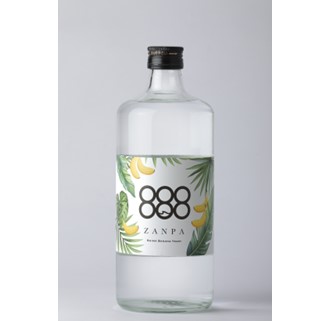
Professor Hiroshi Takagi and Assistant Professor Shota Isogai in the Laboratory of Fermentation Science, in collaboration with BioJet Co., Ltd. (Uruma, Japan), have successfully isolated the yeast strain 35a14 from the stems of island bananas grown in Okinawa, analyzed its characteristics, and developed a new strain BNNL80 that produces a high level of isoamyl acetate, the main aroma component of bananas.
Awamori brewed with this yeast, ZAMPA Shima-Banana Yeast, has been commercialized by Higa Syuzo Co.,Ltd. (Yomitan, Japan), featuring a fruity and rich flavor including banana aroma.
Bioscience, Biotechnology, and Biochemistry, 87, 240-244 (2023)
Glowing Phalaenopsis Orchid
2024Prof. Ko Kato
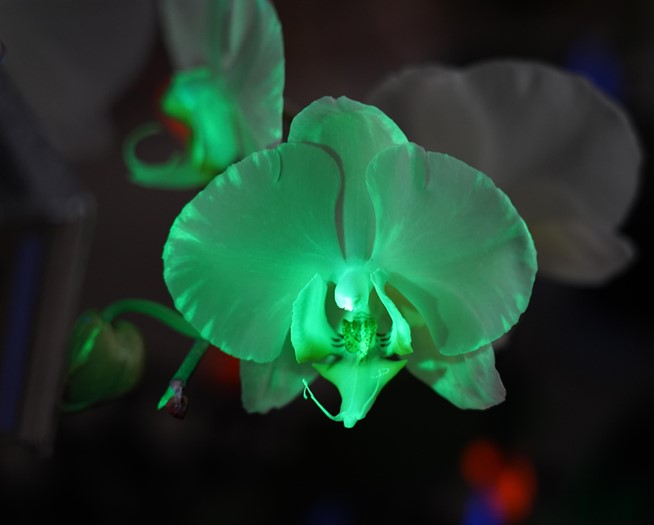
The Glowing Phalaenopsis Orchid emits yellow-green fluorescence throughout the plant under black light.
It has been incorporated a translation enhancer that enhances the expression of heterologous proteins in plants, developed by Professor Ko Kato of Bioengineering Laboratory.
The translation enhancer contributes to increased fluorescence intensity.
This fluorescent orchid was exhibited for the first time in the world as one of the main exhibits of the "World Orchid Show 2024 - Festival of Flowers and Greenery" held in February 2024.
Blue Chrysanthemum
2023Prof. Ko Kato

The blue petal chrysanthemum, announced by Suntory Flowers for sale in North America in 2023, has been incorporated a translation enhancer that enhances the expression of heterologous proteins in plants, developed by a research group led by Professor Ko Kato of Bioengineering Laboratory.
The translation enhancer contributes to increased blue coloration.
Awamori "shimmer#4 Shirayuri Inui 101 Hyper Yeast Brewing"
2023Prof. Hiroshi Takagi
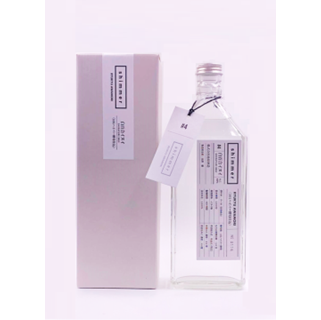
A research group led by Professor Hiroshi Takagi and his colleagues in the Laboratory of Fermentation Science, in collaboration with BioJet Co., Ltd. (Uruma, Japan), developed the awamori yeast strain 101H, and the awamori "HYPER YEAST 101" brewed with the strain 101H was commercialized in 2016 by Shinzato Shuzo (Uruma, Japan). The new awamori brewed with the strain 101H, "shimmer#4 Shirayuri Inui 101 Hyper Yeast Brewing", has now been commercialized by Ikehara Shuzo (Ishigaki, Japan) in the shimmer series by Nanto Liquor Co. (Nishihara, Japan).
Craft Beer "Miminashi-yama"
2022Prof. Hiroshi Takagi
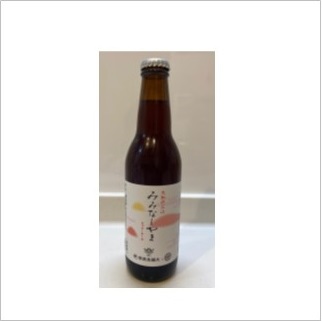
Professor Hiroshi Takagi and Assistant Professor Akira Nishimura of Applied Stress Microbiology Laboratory, in collaboration with Golden Rabbit Beer (Nara, Japan), has developed the yeast strain NTP177 of beer yeast. Red ale beer brewed with this yeast, Miminashi-yama, has been commercialized by Golden Rabbit Beer.
Strain NTP177 contains a high level of phenethyl alcohol, the main fragrance component of roses. Miminashi-yama, brewed with this yeast, is a full-bodied, aromatic red ale beer.
Craft Beer "Unebi-yama"
2022Prof. Hiroshi Takagi
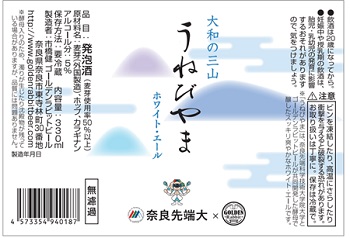
Professor Hiroshi Takagi and Assistant Professor Akira Nishimura of Applied Stress Microbiology Laboratory, in collaboration with Golden Rabbit Beer (Nara, Japan), has successfully selected the yeast strain NP383 suitable for beer brewing. White ale beer brewed with this yeast, Unebi-yama, has been commercialized by Golden Rabbit Beer.
Technology for high production of recombinant proteins in plants -Utilized in COVID-19 vaccine production
2022Prof. Ko Kato
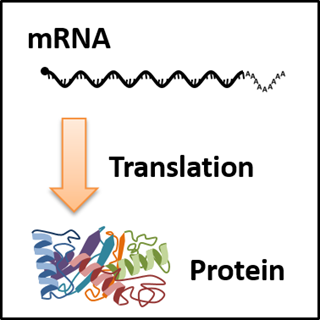
A research group led by Professor Ko Kato of Bioengineering Laboratory, in collaboration with Medicago Inc., Mitsubishi Tanabe Pharma Corporation, developed the translational enhancer that enhances expression of heterologous proteins in plants.
NAIST has assigned its right to the results to Medicago, and the results are used in the COVID-19 vaccine production for Medicago to improve production efficiency.
The technological outcome of this research is being used for COVID-19 vaccine production at Medicago. Vaccine which has been approved by Health Canada on February 24th, 2022. It can also be applied to the production of other protein vaccines and is expected to make further contributions to public health through plant biotechnology.
Craft Beer "Kagu-yama"
2021Prof. Hiroshi Takagi
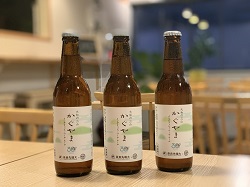
Professor Hiroshi Takagi and Assistant Professor Akira Nishimura of Applied Stress Microbiology Laboratory, in collaboration with Golden Rabbit Beer (Nara, Japan), has developed the strain NP383 of beer yeast. Ale beer brewed with this yeast, Kagu-yama, has been commercialized by Golden Rabbit Beer.
Strain NP383 contains high levels of proline, a sweet-testing amino acid that is expected to improve yeast fermentation in the brewing environment. Kagu-yama, brewed with this yeast, is a light ale beer with a unique mild taste and flavor.
Cell-free protein synthesis reagent
2021Prof. Ko Kato
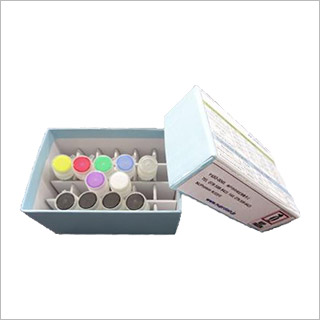
A research group led by Professor Ko Kato of Bioengineering Laboratory, in collaboration with NUProtein Co., Ltd. (Tokushima, Japan), has discovered a translation enhancer suitable for cell-free protein synthesis system.
The reagent for cell-free protein synthesis (Cell-free Protein Synthesis All-in-One Kit BCF5100) incorporating this translation enhancer is available from NUProtein.
Cell-free protein synthesis systems are expected to be used in a wide range of research fields, but the efficiency of protein synthesis is generally considered to be lower than that of synthesis by mass culture of eukaryotes or E. coli. In this collaborative research, by optimizing the mRNA sequence used for protein synthesis, especially the enhancer sequence with translation-promoting activity in the 5'UTR of mRNA, the yield of GFP production was improved by about 3-fold compared to the conventional products.
Awamori "SHO KAMIMURA"
2020Prof. Hiroshi Takagi
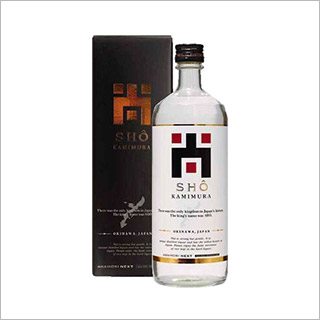
A research group led by Professor Hiroshi Takagi of Applied Stress Microbiology Laboratory, in collaboration with BioJet Co., Ltd. (Uruma, Japan), has developed the strain T25 of hibiscus yeast. Awamori brewed with this yeast, SHO KAMIMURA, has been commercialized by Kamimura Shuzo (Uruma, Japan).
Strain T25 was bred and selected using yeast isolated from hibiscus flowers as the parent strain, and is characterized by its ability to produce more aromatic awamori.
They identified mutations in strain T25 from the parent strain through whole genome analysis and other methods, clarified the mechanism behind the high productivity of leucine and isoamyl acetate, the source of the ginjo aroma, and published their findings in an academic paper.
Awamori "HANAHANA"
2016Prof. Hiroshi Takagi
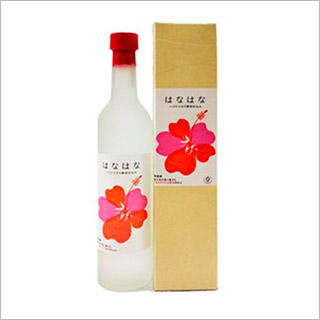
A research group led by Professor Hiroshi Takagi of Applied Stress Microbiology Laboratory, in collaboration with BioJet Co., Ltd. (Uruma, Japan), has developed the strain C14 of hibiscus yeast. Awamori brewed with this yeast, HANAHANA, has been commercialized by Kamiya Shuzosho (Yaese-cho, Japan).
Strain C14 was selected using yeast isolated from hibiscus flowers in Okinawa, Japan, as the parent strain, by applying Prof. Takagi’s breeding technology.
Awamori "HYPERYEAST101"
2016Prof. Hiroshi Takagi
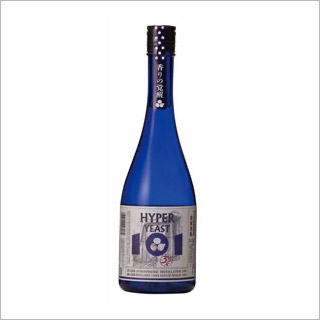
A research group led by Professor Hiroshi Takagi of Applied Stress Microbiology Laboratory, in collaboration with BioJet Co., Ltd. (Uruma, Japan) and University of the Ryukyus, has developed the novel awamori yeast, the strain 101H. Awamori brewed with this yeast, HYPERYEAST101, has been commercialized by Shinzato Shuzo Co., Ltd. (Okinawa, Japan).
Strain 101H was selected using yeast isolated from the parent strain, awamori yeast 101, by applying Prof. Takagi's breeding technology. Strain 101H has a stronger aromatic component than the parent strain and is characterized by its ability to bring out a fruity flavor.
Multi-sensing board with BLE
2016Assoc. Prof. Yutaka Arakawa

A research group led by Associate Professor Yutaka Arakawa of Ubiquitous Computing Systems Laboratory, in collaboration with Matilde Inc. (Shibuya-ku, Japan), has developed SenStick, multi-sensing board with BLE.
SenStick uses common LiPo batteries instead of button batteries and is capable of sensing for more than 24 hours (as 105mAh) on a single charge. Furthermore, unlike conventional BLE sensors, SenStick has a large flash memory (32M bytes), allowing for continuous logging without the need for a smartphone. Due to its small size and stick-like shape, SenStick is suitable for the IoT of various objects in daily life, from long and thin objects such as glasses, chopsticks, and walking sticks to small objects.
